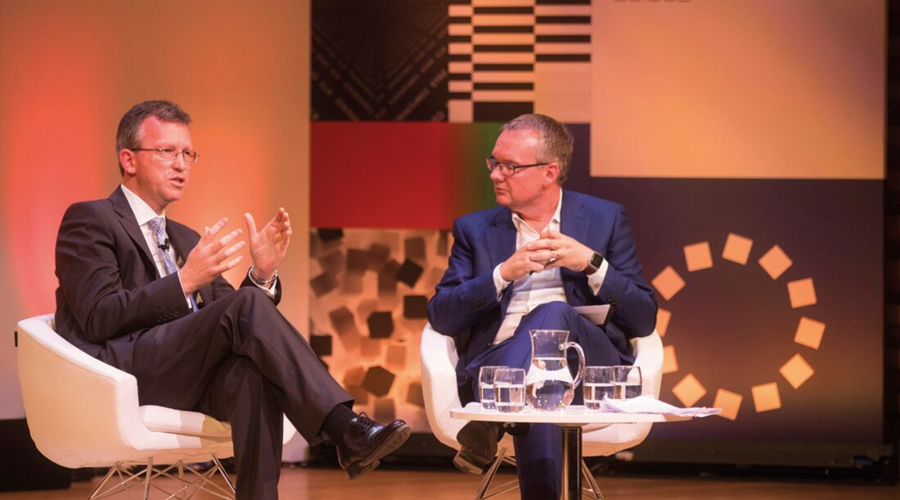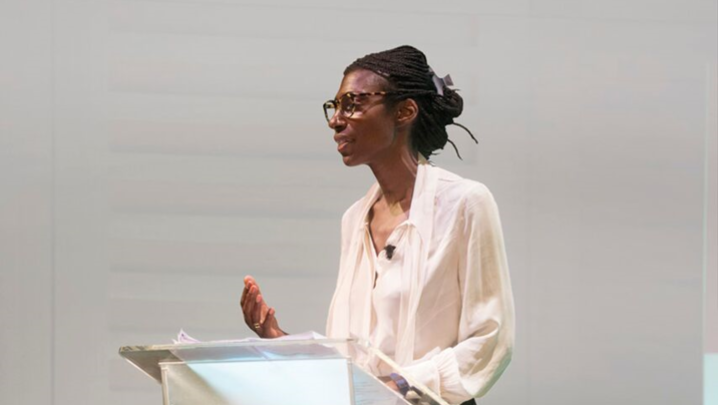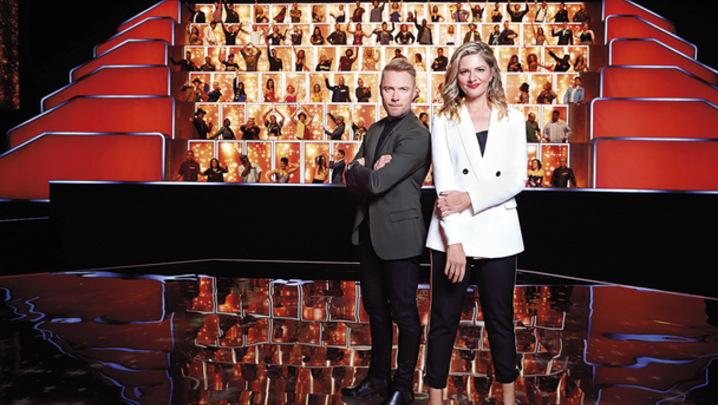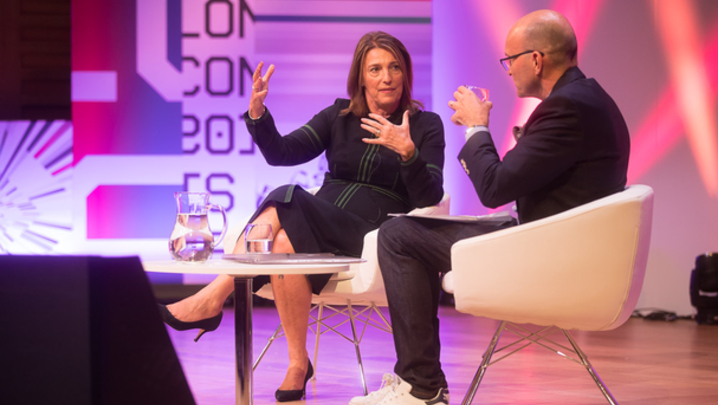Jeremy Wright, the new culture secretary, sets out why democracy needs strong public service broadcasters
I feel very fortunate to have been in this wonderful role for three months. For the media, and for the television industry in particular, trust is a vital commodity. It may not capture the imagination in quite the same way as a new drama, be as immediately celebrated as an overnight Barb rating, or even be treasured quite as much as new revenue. But all broadcasters need trust to succeed.
So I want to talk today about what the TV industry – and public service broadcasters in particular – can do to maintain that trust, and help us address some of the most pressing issues in our society and democracy.
The most obvious aspect of trust is in relation to the accuracy of news. Disinformation is one of the most significant issues of our age.
We have all seen how it can sow discord and pose a risk to free and fair elections.
As the digital revolution continues to transform our lives, the potential to disrupt our civil society and democratic institutions grows.
Given the speed of technological change, it is perhaps no wonder that, according to Reuters, only 42% of people trust the news they read. Crucially, however, 70% of viewers consider television a trustworthy source of news.
But, while TV is still where most adults in the UK turn for their news, this is not true for younger audiences. Indeed, Ofcom found that, for 82% of 16- to 24-year-olds, the internet is their first port of call.
Although people are increasingly turning to the online space for news, less than a third of people believe that the majority of news apps and websites are trustworthy.
We are developing a range of regulatory and non-regulatory measures to improve transparency and accountability online, and thus tackle a range of online harms.
Following the Salisbury incident, Russia has begun a blatant disinformation campaign, with misleading procedural questions and more than 40 different official narratives, all false. Many of these were carried and promoted on Kremlin-backed media.

(Credit: Russia Today)
Russia Today, funded by the Russian state, is a major concern. Ofcom has repeatedly found violations of standards by RT. These include cases where Ofcom has labelled RT’s coverage “materially misleading”.
Ofcom currently has 10 investigations into the impartiality of RT’s news and current affairs programmes. I welcome these investigations and I await their conclusions with great interest.
It is true that the tech sector, and Twitter in particular, has been taking action to make it more difficult and costly for those who would mount disinformation campaigns.
This has included the development of algorithms to spot fake accounts and the deletion of hundreds of thousands of suspect accounts, many linked to hostile states such as Russia.
But, of course, they can and should do more in this battle. Our democracy depends on it.
And, as well as tackling sources of inaccurate information, we want to strengthen and support high-quality sources that people can trust.
Properly researched journalism is the best possible weapon in our battle against fake news.
The PSBs and other trusted broadcasters have a vital role to play. As well as continuing to provide high-quality news on linear TV, PSBs must also work to reach a wider audience.
And we have seen a lot of success here - for example, Channel 4 News on Facebook gets 60 million views per month – the most for any British news programme. And last year it had 2 billion video views across Facebook and YouTube.
The accuracy of news is not the only way for PSBs to generate trust. For decades, they have entertained, informed and educated, establishing a trust that was inherited from generation to generation. As national institutions in a multichannel world, our public service broadcasters must work to secure the trust of the whole UK.
One example is making younger viewers just as engaged in PSB programming as their parents were. This change in consumption habits is showing no sign of slowing down. So you must reach them where they want to be reached. And they must find you where they expect you to be found.
I want to see the PSBs being nimble, working across platforms, innovating and collaborating. Internationally, this has been a success: BritBox is showing the best of British to viewers in the US and Canada. PSBs should not be afraid of building on this success at home.
At their best, PSBs have an innate ability to tap into the mood of the nation.
This is their competitive edge. And, so, it is crucial that these organisations are made up of the people that they serve – both on and off screen.
We all know that people want content that speaks to them and their experiences – this means people from different regions, ethnic backgrounds and social groups. Proper representation is vital to maintaining the trust of different audiences.
While 83% of viewers think it is important that PSBs portray their region fairly, only 63% think that they do.

I am very pleased that the BBC and Channel 4 have agreed to increase their regional impact, and I hope other broadcasters will continue to do more.
More than half of black viewers felt that there weren’t enough black people on TV, and when they are, 51% feel that they are portrayed negatively.
This means asking some searching questions, too, about the make-up of our media organisations. To meet the needs of younger, more diverse audiences, it is easier if you employ them.
This means providing genuine opportunities for those who have talent but may not yet be the finished product, or might not know the right people. Michaela Coel talked compellingly in Edinburgh just a few weeks ago about how, in her early years in the TV industry, she felt like a misfit or an outsider.
As national institutions, it is your job to invite people in. By doing so, you will not only create and solidify that trust: you will secure it for generations to come.
In exchange, the government will support PSBs to ensure that they continue to thrive, and stay prominent, as part of a healthy, sustainable and dynamic media landscape.
So, I can assure you that I will be looking closely at the results of Ofcom’s work on prominence, and will work with the PSBs and the whole sector, to ensure that the Government is playing its part in supporting the future of public service broadcasting at the very heart of our vibrant media sector.
Broadcasting is one of this country’s greatest success stories. Our extraordinary content and talent are respected around the world. Indeed, the UK recently reclaimed top position in the global soft power index, driven in large part by our cultural and creative industries, not least our superb broadcasting sector.
Shows and formats such as Doctor Who and Bake Off are known and admired the world over, and one study found that, among US readers, four of the 10 most trusted sources of news are based in Britain.
We need to build on this. Because a strong media means a strong democracy and a strong nation. And we cannot be complacent.
Those sowing discord want to undermine this trust and the institutions upon which our liberal democracy relies. Trust is a precious commodity and bolstering it is vital to our future.
This is an edited version of a speech given by the Rt Hon Jeremy Wright MP, Secretary of State for Digital, Culture, Media and Sport. The full version can be here.
Session Twelve was chaired by David Lynn, RTS Conference Co-Chair and President and CEO, Viacom International Media Network. The producers were Sue Robertson and Martin Stott.
Question & Answer
Q.On internet regulation, what are the Government’s plans for legislation and what is the timescale?
A. Jeremy Wright: As to when, that’s putting the cart before the horse. The first question to ask is: “What?” What you need to do in this is to approach it in a logical way. I apologise for the fact that I am a lawyer, so bits of this is my lawyer’s brain talking.
I think you’ve got to ask the right questions in the right order. What I mean by that is you’ve got to start by asking yourself, what are the harms you are trying to minimise or, if possible, remove altogether?
You’ve then got to ask yourself what responsibilities do online companies have for minimising or removing those harms…?
You then ask yourself, how do you put in structures to enable those responsibilities to be carried out?
Finally, you ask yourself, if those responsibilities are not met, what should happen to those online companies? Who is responsible for holding them to account…?
None of this is straightforward. There are interesting examples abroad. I am going to be in Germany next week, speaking to my counterparts. I am sure this subject will come up.
I want to look at the German example and other examples of how this needs to be done.
I am conscious of the need to get it right because, if you don’t, two things will happen. First of all, you can guarantee that, whatever system of regulation or restriction you might come up with, it will be robustly challenged by those subject to it.
The second thing that will happen is that the rest of the world will look at what we’re doing. I want to make sure that what we’re doing is a good example, not a flawed example.
So I will apologise now if it takes a little bit longer than people might like… it’s more important to get it right than to get it done fast.
Q. Tony Hall made a strong argument today for improved funding for the BBC. Looking forward to the next licence-fee settlement, will you turn a deaf ear to those requests or are you minded to increase the licence fee?
A. Jeremy Wright: I am certainly not going to turn a deaf ear to requests. I’ll listen carefully to the arguments that are made, but it’s worth recognising a couple of things.
First, the BBC licence fee brought in a lot more money last year than it did the year before. We closed a loophole in relation to the iPlayer, which helps the BBC considerably in terms of its funding settlement.
It isn’t true to say that the BBC is starved of cash.... I will listen to the BBC’s arguments, but I will expect the BBC to do its best with the resources it has available to it now.







